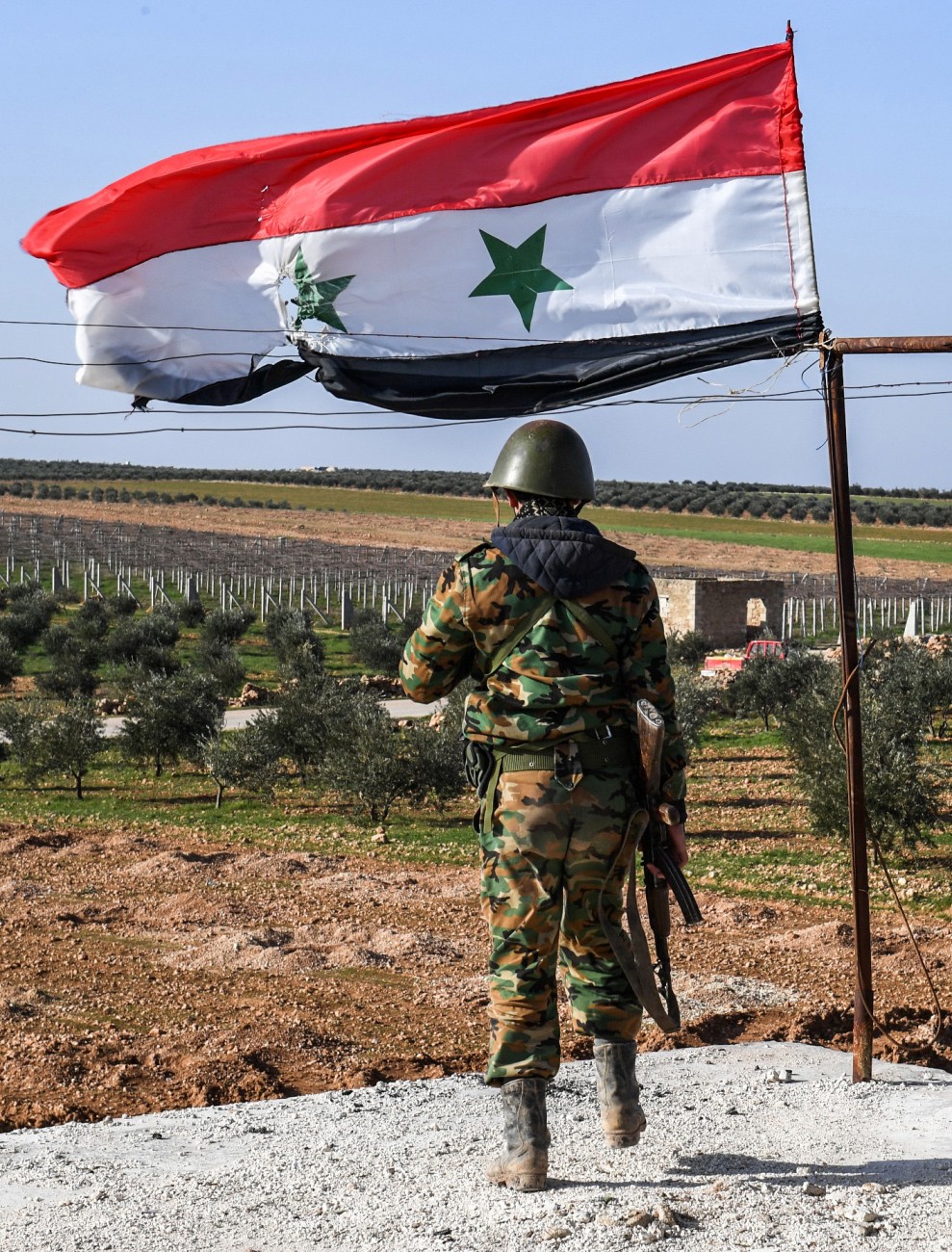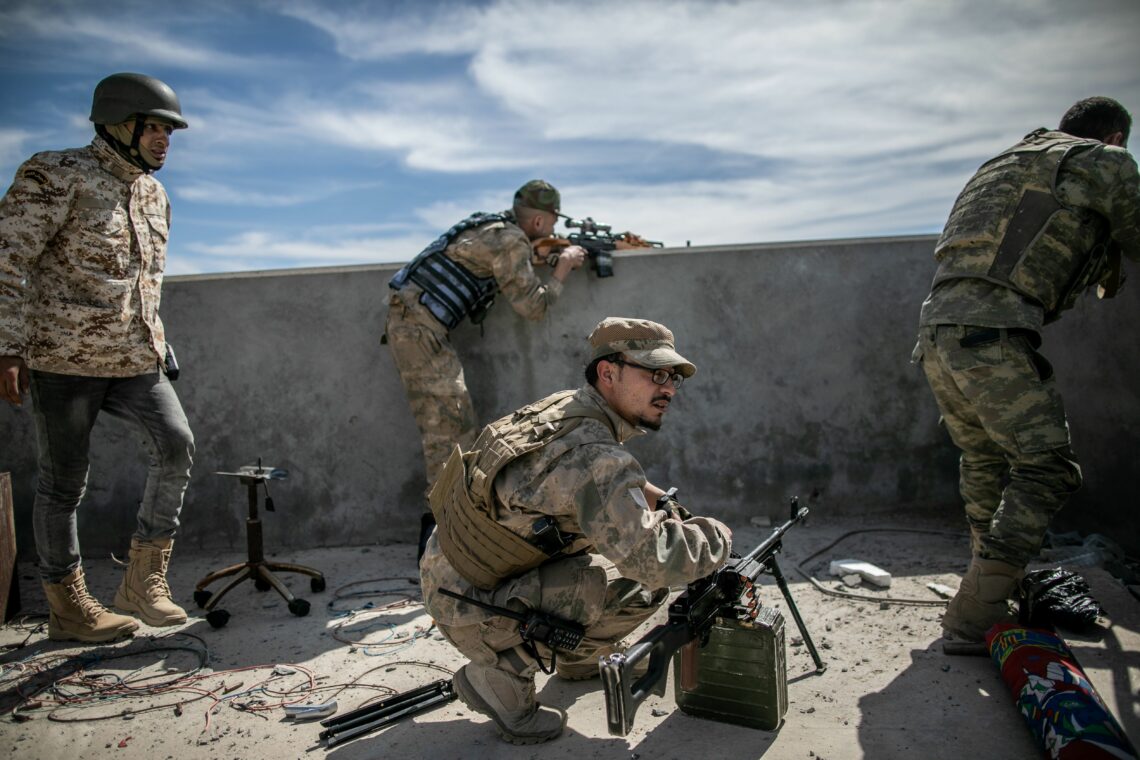Arabic Military - Two crossed lines forming an X. This indicates a way to close the interaction or reject the notification.
Home Chevron Icon This indicates an expandable section or menu, or sometimes a previous/next navigation option. Military and Defense Assistants
Arabic Military

Twitter icon A stylized bird with its mouth open and tweeting. Twitter LinkedIn icon The word "at". LinkedIn Fliboard icon Stylish letter F. Flipboard Facebook Icon Letter F. Facebook Email Icon Envelope. This indicates the ability to send email. Email link icon Image of a chain link. It symobilizes the URL of a website link. Copy the link
War On Isis: Why Arab States Aren't Doing More
Abu Dhabi Crown Prince Sheikh Mohammed Bin Zayed Al Nahyan shakes hands with a member of the UAE Armed Forces during a joint military operation between the UAE and French armies in the Abu Dhabi desert. WAM/Reuters
SHARM EL-SHEIKH, Egypt (AP) — Arab leaders meeting this weekend in this Egyptian Red Sea resort are moving closer to creating a joint Arab military force, a sign of renewed determination by Saudi Arabia, Egypt and their allies to intervene aggressively. against Islamic militants or the spread of Iranian power.
Creating such a force is a long-standing goal that has eluded Arab states in the 65 years since they signed a rarely used joint defense treaty. And reluctance remains in some countries, particularly Iran's allies such as Syria and Iraq - reflecting the region's divisions.
The foreign ministers meeting in Sharm el-Sheikh before the summit starting on Saturday agreed on a broad plan for the forces. It comes as Saudi Arabia and its allies have launched an airstrike campaign in Yemen against Iranian-backed Shiite rebels who have seized much of the country and forced its US- and Gulf-backed president to flee abroad.
U.s. Joins Arab Allies In Aiding Lebanese Army
The campaign in Yemen was a significant test of the new policy of intervention in the Persian Gulf and Egypt. The emerging crisis in Yemen - and fears in the Persian Gulf that the rebels are a proxy for Iranian influence - have motivated their efforts to create a common Arab force. But it also showed that they would not wait for the Arab League, known for its delays and divisions, and would continue their military coordination on many fronts.
Egyptian officials said the airstrikes in Yemen would be followed by a ground intervention that would further weaken the rebels, known as the Houthis, and their allies and force them to negotiate. They also stepped up operations in Libya after it descended into chaos since 2011 and the rise of militants there - including now a daughter of the Islamic State, which has overrun much of Iraq and Syria. Egypt and the United Arab Emirates both carried out airstrikes against Libyan militants last year.
In their agreement on Thursday, the foreign ministers called on the chiefs of staff of the Arab League's 22 member states to meet within a month to discuss the details of the force, such as its budget and mechanism, and to report on the matter. organization.

Egyptian military and security officials said the proposed force would consist of up to 40,000 elite soldiers and would be headquartered in the Saudi capital Cairo or Riyadh. The troops are supported by jet fighters, warships and light tanks. They spoke on condition of anonymity because they were not authorized to speak to the media.
Military Drill In Saudi Ends With Massive Parade
Arab League officials said some Arab countries are wary of creating a joint force, including Iraq, whose Foreign Minister Ibrahim al-Jaafari has advised fellow ministers that more time is needed for planning. Iran has great influence in Iraq's Shiite-led government, and its military advisers are actively involved in the fight by government forces and allied Shiite forces against Islamic State militants.
The Associated Press exclusively reported in November that the leaders of Egypt, Saudi Arabia, the United Arab Emirates and Kuwait, all Sunni Muslim countries, discussed creating a joint military alliance with possible joint forces against the threat of Islamic militants. in Libya and to counter the growing influence of Shiite, non-Arab Iran, especially in Yemen. Jordan and Bahrain have since expressed their willingness to join the alliance.
Egypt's president, military politician Abdel-Fattah el-Sissi, is the first Arab leader to speak publicly about the plan. In a recent speech, he said joint Arab forces are now urgently needed and reiterated his call for Egypt to be ready to intervene militarily to support its Gulf allies. Saudi Arabia, Kuwait and the United Arab Emirates have poured billions of dollars into Egypt's empty coffers since el-Sissi ousted Mohammed Mursi in July 2013 following mass protests against the Islamist president's rule.
"The resolution sends a clear message that Arab countries can agree on a plan to defend themselves," Arab League Director General Nabil Elaraby said at a news conference Thursday in Sharm el-Sheikh. Egyptian Foreign Minister Sameh Shukri said the proposed force would carry out "quick and effective missions".
Russian Forces In Syria And The Building Of A Sustainable Military Presence: Towards A Restructuring Of The Syrian Army?
Royal Saudi Air Force jets fly in formation during a graduation ceremony at the King Faisal Air Academy in Riyadh January 1, 2013. REUTERS/Fahad Shadeed
Saudi Arabia, a staunch US ally, considers Yemen strategically important to its national security and traditionally favors its key players, including top politicians, military commanders and tribal leaders, to protect its interests. It fought a brief border war against the Houthis in 2009. Similarly, Egypt considers neighboring Libya vital to its own national interests. Last month, Egyptian warplanes struck Islamic State positions in eastern Libya in retaliation for the massacre of 21 Egyptian Coptic Christians.
However, Thursday's resolution would streamline military actions, such as those taken by the Egyptians and Saudis in Libya and Yemen, allowing future actions to take place under the auspices of the Arab League. El-Sissi demands UN-backed forces The West has restrained intervention in Libya on the basis that more time should be given to UN-led actions. to negotiate with rival governments in Libya.

Egyptian forces recently ended a large-scale war game near the border with Libya. Codenamed "Thunder," the exercise involved naval warships, attack helicopters and beach landings by army commandos.
Moroccan Military Leader Visits Israel To Expand Cooperation
In addition, Egypt and its Gulf Arab allies have held a series of joint war games over the past year, including some in the Red Sea, a tactic Egyptian officials say is necessary to create unity among members of the proposed force.
According to officials, Egyptian forces are already embedded with Saudi Arabian forces on the kingdom's border with Iraq, nearly a third of which is controlled by the Islamic State. Egyptian military advisers have also been stationed near Saudi Arabia's border with Yemen. As the crisis in Yemen worsened, Egypt worked with Sudan and Eritrea in the Horn of Africa to ensure maritime security at the southern entrance to the Red Sea at Bab al-Mandab, from which Yemen is invisible.
NOW WATCH: A Florida lawyer comes up with an ingenious way for drivers to avoid drunk driving. An Arabic linguist advises Iraqi soldiers on setting up battle positions to avoid friendly fire during a training exercise at Camp Taj, Iraq in 2015. (Sgt. Cody Quinn/Army)
Over the past few years, the military has cut hundreds of blanks for Arabic language scholars. As a result, promotions in the community have stalled, so the military is taking steps to reclassify linguists based on dialect rather than general Arabic speaking.
Hybrid Security And Coup Proofing In The Arab World
That frees up room for advancement, according to a Feb. 26 email from the Human Resources Command's military intelligence division. But it also pays these linguists, who earn various bonuses for their language skills.
"The Army plans to begin marketing in dialects in the near future so that we can grow our Arabic language portfolio to include Iraqi, Levantine and Egyptian," the email said.
Chief Warrant Four Gary Callister, an Arabic linguist from the 300th Military Intelligence Brigade (linguist), shares a traditional Omani breakfast after a presentation during a cooperative, knowledge-sharing field exercise at the Rubkut Training Area, Oman, in January. 21, 2012 (Photo: Defense Language Institute Foreign Language Center)

What does this mean for 35P, said HR spokesperson Lt. col. Rosalba Poulos in the Army Times, coded in Modern Standard Arabic by Arabic linguists, had to pick up the dialect.
Where U.s. Troops Are In The Middle East And Afghanistan, Visualized
"Until now, all Arabic-speaking soldiers have been identified by a common Arabic code," Poulos said. "Going forward, the plan is to change the language code of Arabic-speaking soldiers to identify a specific dialect."
This would likely favor soldiers with in-demand dialect expertise for promotion, rather than the current system that treats all Arabic speakers equally.
For many soldiers serving a modern Arabic billet, that would simply mean recoding them into a dialect they already speak. However, many do not yet have a dialect and need to learn it.
The Army's Hottest Jobs: How to Get into the MOS You Want and Make Big Bucks The Army works hard to recruit and maintain full strength year-round. . There's a lot
United Arab Emirates Army
Arabic class, arabic training, military ranks in english and arabic, military, arabic tuition, babbel arabic, military arabic phrases, babel arabic, arabic military ranks, military arabic, arabic online, arabic lessons
0 Comments